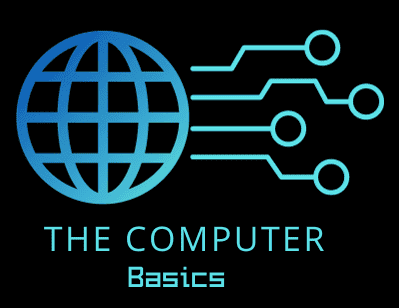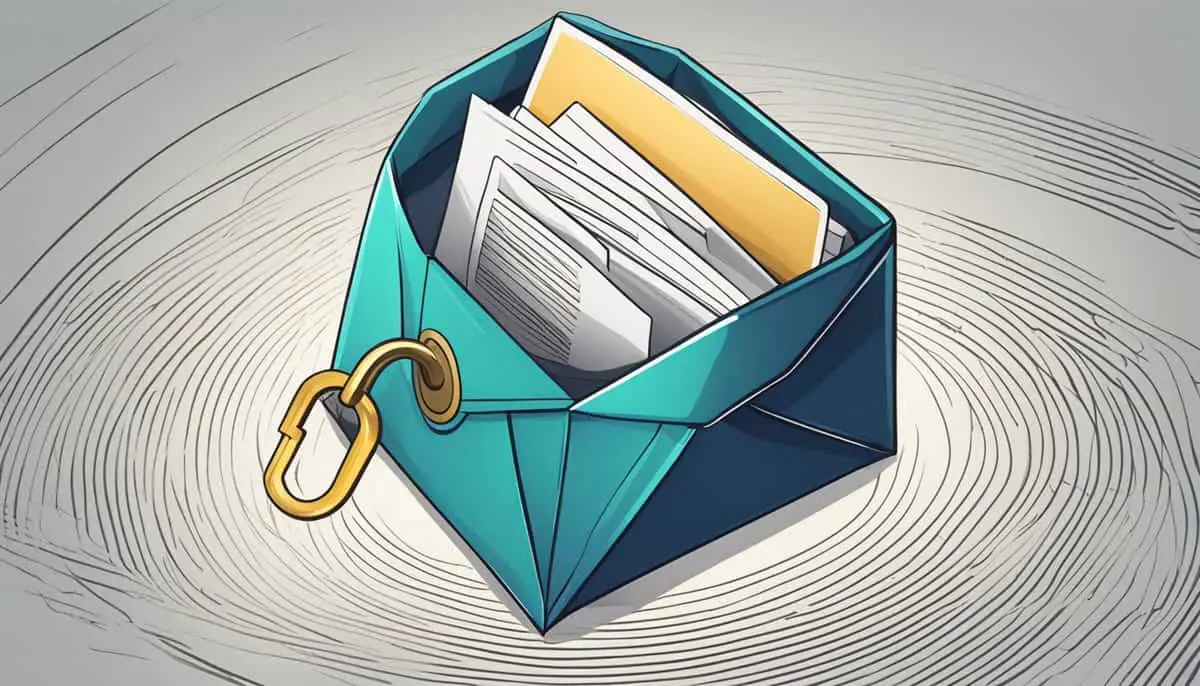In today’s digital age, keeping your email conversations private is essential. You can protect your communications through email encryption, which ensures the contents of your email can’t be read by anyone other than the intended recipients.
Choosing secure email providers like ProtonMail or Mailbox.org significantly boosts your email privacy because they offer end-to-end encryption and strong security features.
Using a secure email service isn’t the only step you should take. Implementing good email practices is also crucial. Always use strong, unique passwords and enable two-factor authentication on your email accounts. Regularly update your security settings and be vigilant about phishing attacks.
If you’re serious about maintaining private email communications, layering your protection is key. Combine reliable email encryption with a trustworthy provider and sound personal security habits to safeguard your conversations effectively. By doing so, you can ensure your email remains private and secure.
Key Takeaways
- Use email encryption to protect your messages.
- Choose secure email providers for strong privacy features.
- Adopt good email practices to enhance security.
Understanding Email Privacy
Email privacy is crucial in maintaining the confidentiality of your communications. It involves protecting your sensitive information and personal data from unauthorized access and potential security threats.
The Importance of Email Privacy
Email privacy helps safeguard your sensitive information. When you send an email, it often contains personal data that you don’t want others to see. This can include financial details, private conversations, or confidential documents.
By using email privacy tools, you ensure that only the intended recipient can read your messages. This protects your privacy and allows you to communicate securely without worrying about data breaches.
Email privacy also helps in maintaining trust. When people know that their data is secure, they’re more likely to share personal or professional information through email.
Common Threats to Your Email Security
There are several common threats to your email security that you should be aware of. Phishing attacks are one of the most common threats. These attacks trick you into giving away your personal information by pretending to be a trustworthy entity.
Another major threat is hacking. Hackers can gain unauthorized access to your email account and steal sensitive information. Often, they do this by guessing your password or using malware.
Malicious software, or malware, can also be a threat. This software can infiltrate your device through email attachments, compromising your personal data.
Using strong passwords, enabling two-factor authentication, and being cautious with email attachments can help mitigate these threats. For added security, consider using end-to-end encryption with reputable email providers like Proton Mail.
Email Encryption Technologies
Email encryption uses several methods to protect your messages from prying eyes. Knowing how popular encryption technologies like PGP and S/MIME work, and understanding end-to-end encryption, will help you maintain your email privacy.
How PGP Works
Pretty Good Privacy (PGP) is a popular encryption technology that ensures only the intended recipient can read your email. PGP uses public key cryptography where you share your public key with others to receive encrypted emails. You keep your private key secret to decrypt incoming messages.
PGP also uses OpenPGP, an open standard that makes it easier for different software and email services to support PGP’s encryption. When you use PGP, your email gets encrypted, meaning it gets transformed into unreadable text. Only the recipient with the correct private key can decrypt and read it.
Benefits:
- Strong encryption that’s hard to break.
- Widely supported by various email services.
Drawbacks:
- Requires initial setup.
- Both sender and receiver need to use PGP-compatible software.
Comparing S/MIME and PGP
S/MIME and PGP are both used to encrypt emails, but they have some differences. S/MIME (Secure/Multipurpose Internet Mail Extensions) uses certificates issued by a trusted Certificate Authority (CA) to verify the identities of the sender and receiver. In contrast, PGP relies on a web of trust where users verify each other’s identities.
S/MIME integrates seamlessly with many email clients like Microsoft Outlook and Apple Mail. It doesn’t require additional plugins, making it user-friendly. On the other hand, PGP often requires third-party software or plugins but offers more granular control over encryption settings.
Key Points:
- S/MIME: Uses CA-issued certificates, easy integration.
- PGP: Web of trust, more control, additional software needed.
Understanding End-to-End Encryption
End-to-end encryption (E2EE) is a method where your email remains encrypted from the moment it’s sent until the recipient opens it. This means no one in the middle (including email providers) can read the content. Providers like Proton Mail offer this kind of encryption to ensure maximum privacy.
With E2EE, your emails use zero-access encryption, meaning even the service provider can’t access your messages. This is crucial for keeping sensitive information secure. Many secure email services combine E2EE with technologies like PGP to enhance security even more.
Main Features:
- Complete privacy: Only sender and recipient can read emails.
- Higher security: Protects against email provider breaches.
Using these encryption technologies effectively will help keep your email conversations private and secure.
Choosing a Secure Email Provider

Picking a secure email provider involves looking for strong encryption, privacy-focused policies, and a reputable track record. Below, learn what makes an email provider secure and which services are leading in privacy.
What Makes an Email Provider Secure?
Security in email providers is about more than just passwords. End-to-end encryption is vital because it ensures only you and the recipient can read the emails. Look for providers that don’t store your emails in plain text, like ProtonMail, which uses asymmetric encryption.
Jurisdiction matters too. Some countries have strong privacy laws, while others might require companies to hand over data. Email providers based in countries with strict privacy laws, such as Switzerland for ProtonMail, offer better protection.
Check for privacy features like two-factor authentication, OpenPGP support, and minimal data retention. Some providers also commit to using green energy, which might be important for environmentally conscious users.
Email Providers Committed to Privacy
Some of the top secure email providers include ProtonMail, which offers strong encryption and is based in privacy-friendly Switzerland. It provides free and premium plans, with end-to-end encryption and other security features.
Tutanota, based in Germany, also stands out for its strong privacy policies and GDPR compliance. It offers encrypted emails and calendars, making it a good option for both personal and professional use.
Mailbox.org is another strong contender. This German provider is known for its affordability and commitment to privacy, including metadata encryption and support for business users.
For those looking for additional privacy layers, Hushmail offers encrypted email and added tools like secure web forms. It’s a reliable choice for professional use and offers a free trial for new users.
Best Practices for Private Email Communication

To keep your email conversations private, it’s crucial to secure your email account and handle sensitive information cautiously. The following guidelines will help you do both and protect your personal data.
Securing Your Email Account
Strong passwords are a must for keeping your email secure. Use a mix of letters, numbers, and special characters. Avoid obvious passwords like “password123” or your name.
Enable two-factor authentication (2FA). This adds an extra layer of security by requiring a second form of verification, like a text message code or an authentication app.
Be cautious with emails that ask for personal information. These could be phishing attacks—fraudulent emails designed to steal your info. Don’t click on suspicious links or download attachments from unknown senders.
Use an encryption service for your emails. Encryption turns your emails into unreadable text except to those who have the decryption key. Providers like ProtonMail offer strong encryption.
Regularly update your security settings and software. Outdated software can be a weak spot for data breaches.
Dealing With Sensitive Information
When handling sensitive info, consider using password-protected messages. Many email services offer options to set a password that the recipient must enter to read the message.
Be mindful of the content you send. Avoid sharing personal details like social security numbers or passwords over email. Instead, use secure methods designed for such information.
Use a reliable secure email provider. Services like CounterMail and Mailfence focus on privacy and offer advanced security features.
Always verify the recipient’s email address before sending sensitive info. Small typos can lead to data breaches.
Consider encrypting individual emails that contain highly sensitive information. This ensures that only the intended recipient can read the email, adding an extra layer of protection.
Extra Layers of Email Protection

When it comes to email privacy, using a combination of tools can add multiple layers of protection. VPNs and advanced email security features are crucial for keeping your communications secure from prying eyes.
Using VPN with Email
VPNs (Virtual Private Networks) create a secure tunnel for your data, making it harder for hackers to intercept it. When you use a VPN, your internet traffic is encrypted, adding an extra layer of security to your email communication. This is especially useful when using public Wi-Fi, where connections are usually less secure.
For instance, SecureMyEmail offers a handy VPN service integrated with their email encryption features. Combining VPN with email encryption ensures both the message contents and your connection are protected. This way, even if one layer is breached, the other continues to keep your data safe.
VPNs don’t just secure your connection; they also mask your IP address, making it harder for anyone to track your online activities or target you for identity theft. Using a VPN alongside TLS (Transport Layer Security), which encrypts emails in transit, makes your email privacy even more robust.
Advanced Email Security Features
There are numerous advanced features you can use to protect your emails further. Zero-access encryption means that even your email provider can’t read your messages. This is crucial for maintaining privacy and trust. Providers like Proton Mail implement this along with other measures such as end-to-end encryption and transparency reports, which detail how often and why email data is requested by third parties.
Other useful features include sender policy framework (SPF) and DKIM (DomainKeys Identified Mail), which help prevent email spoofing—a common tactic in phishing attacks. These protocols verify that incoming emails are from the source they claim to be, enhancing overall security.
Some email services offer encrypted storage, protecting your emails even when they’re stored on the server. Combining these features with strong spam filters and sophisticated anti-virus scanners makes it much harder for malicious emails to reach your inbox. Services like Mailbox.org use layered encryption to ensure that even if one layer fails, others are still active.

